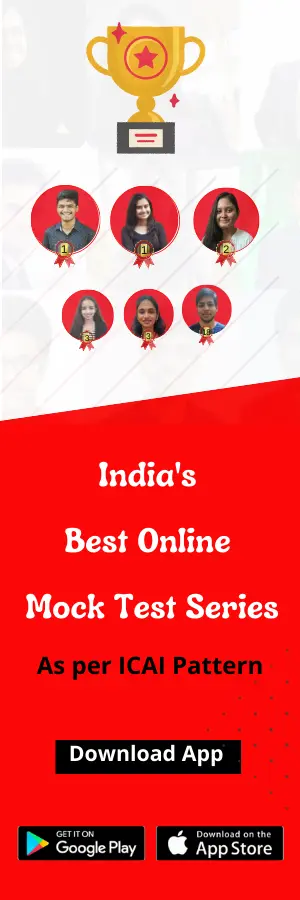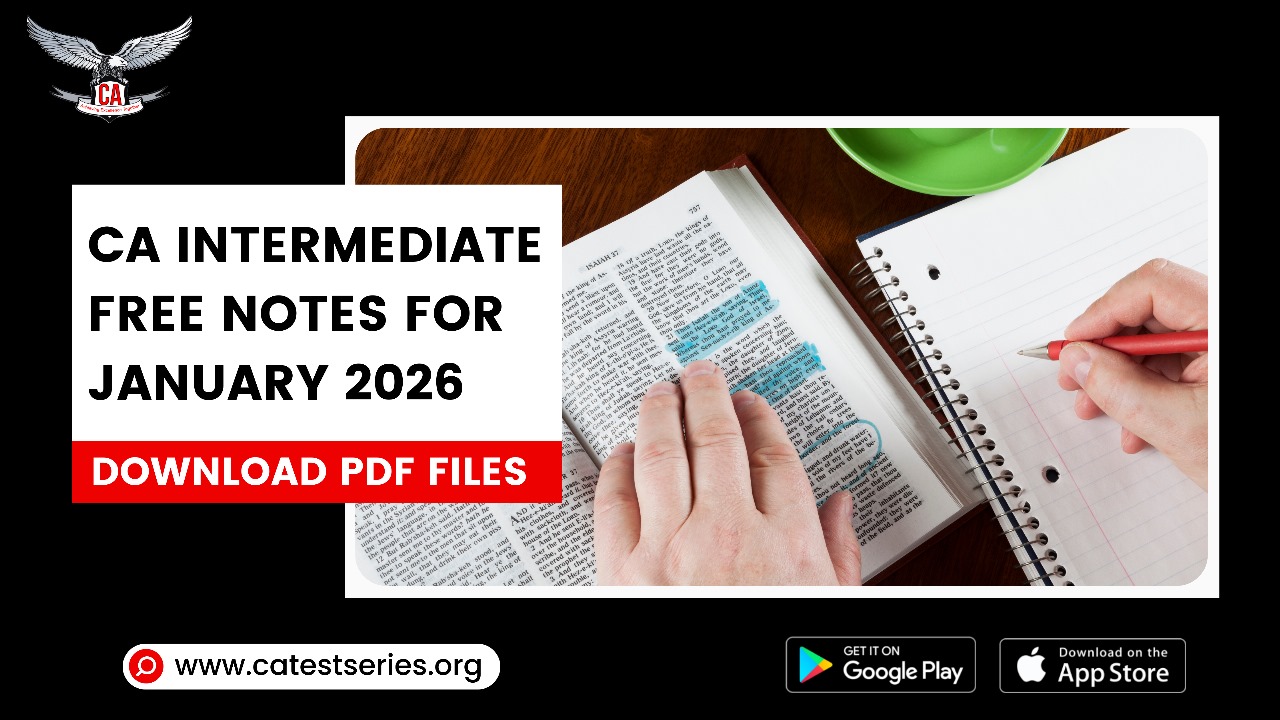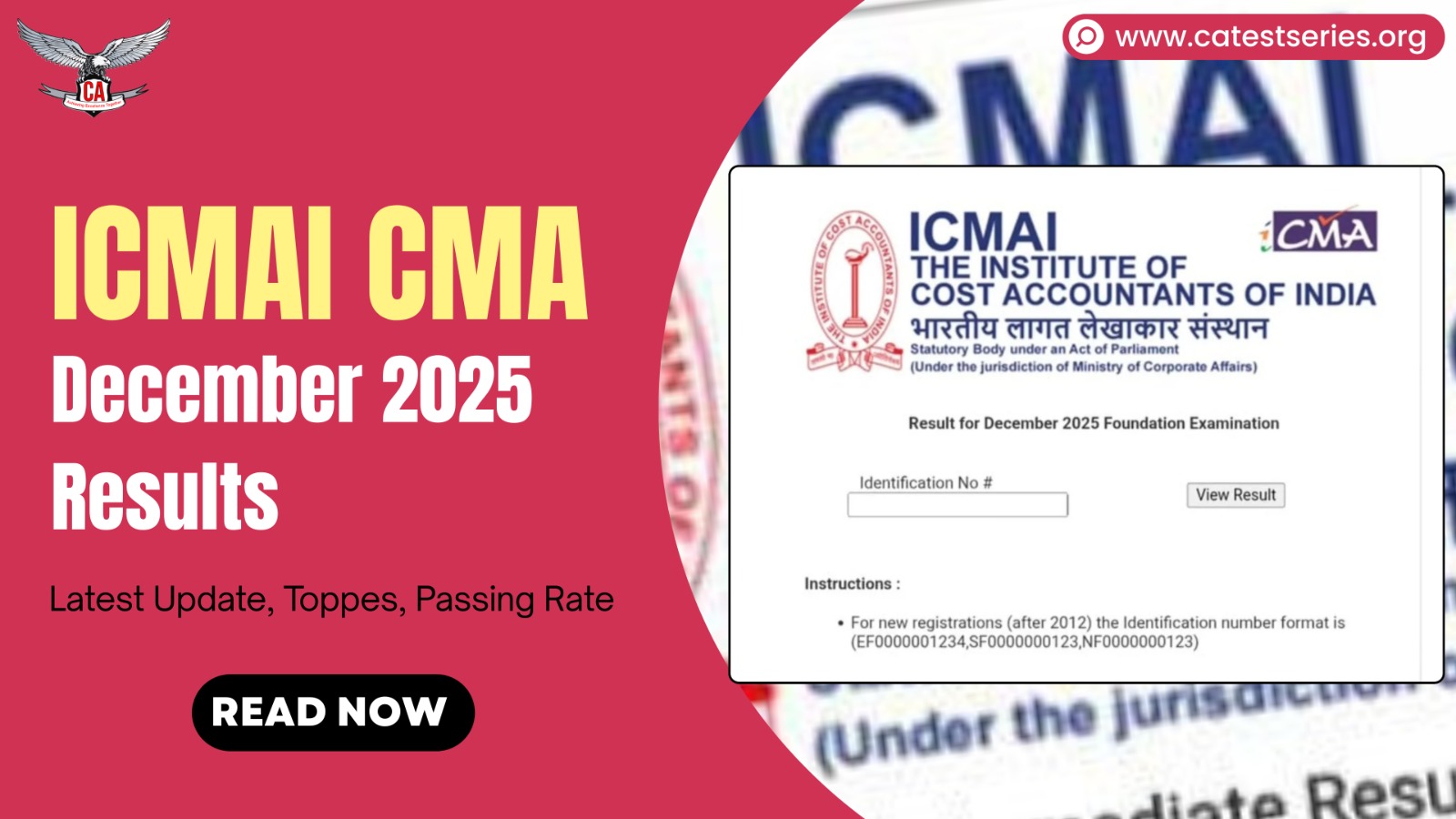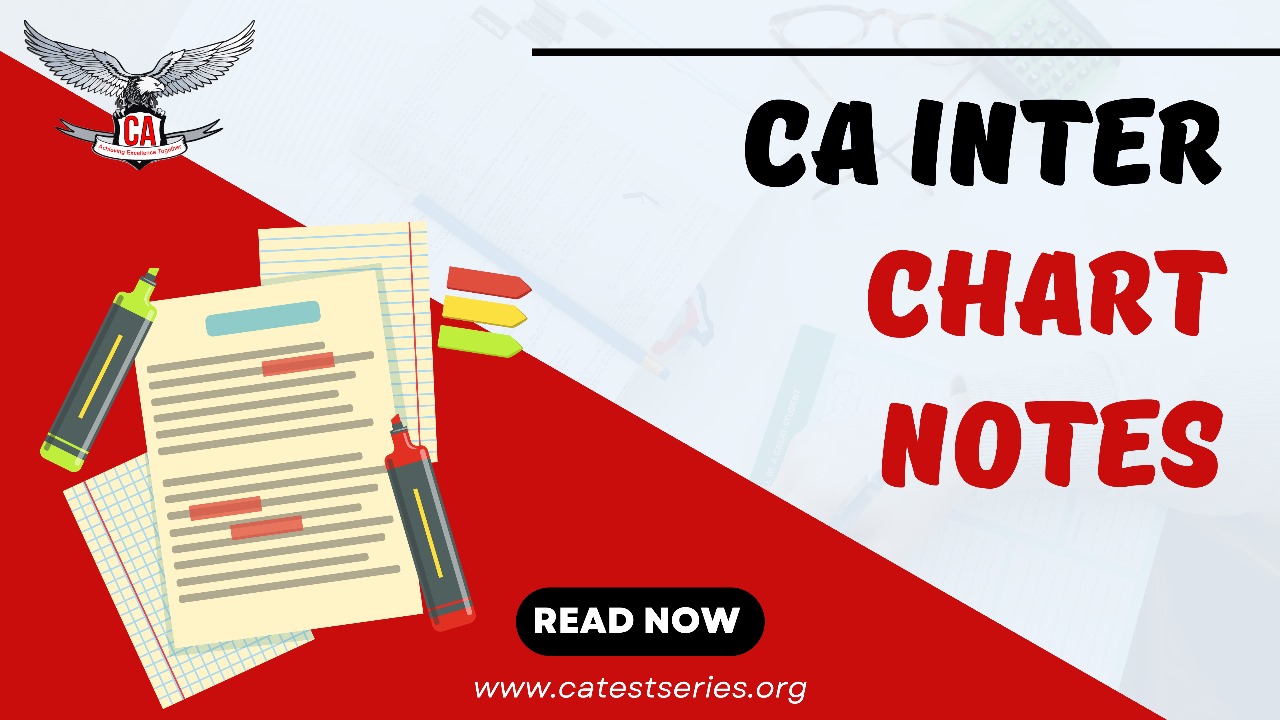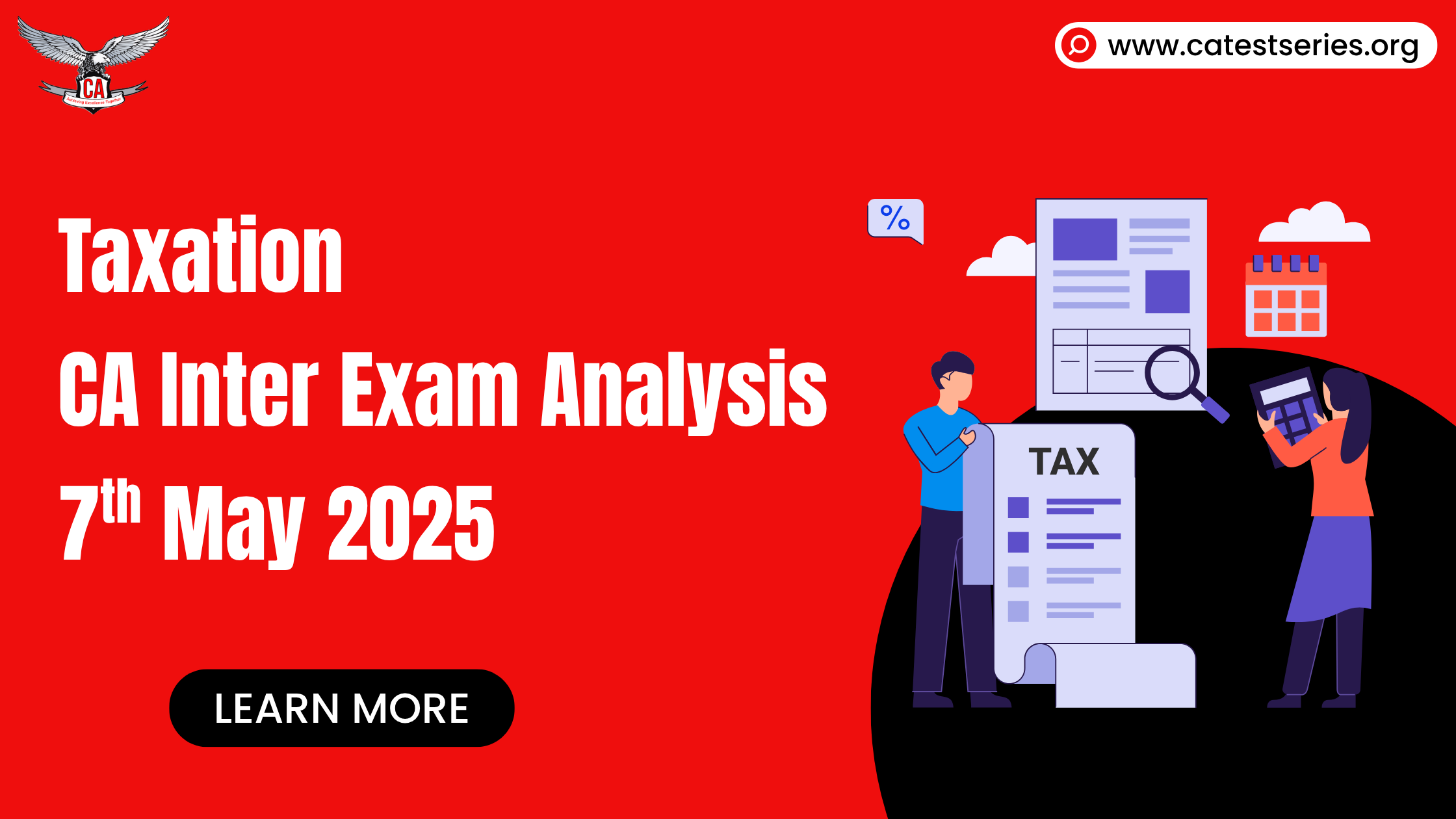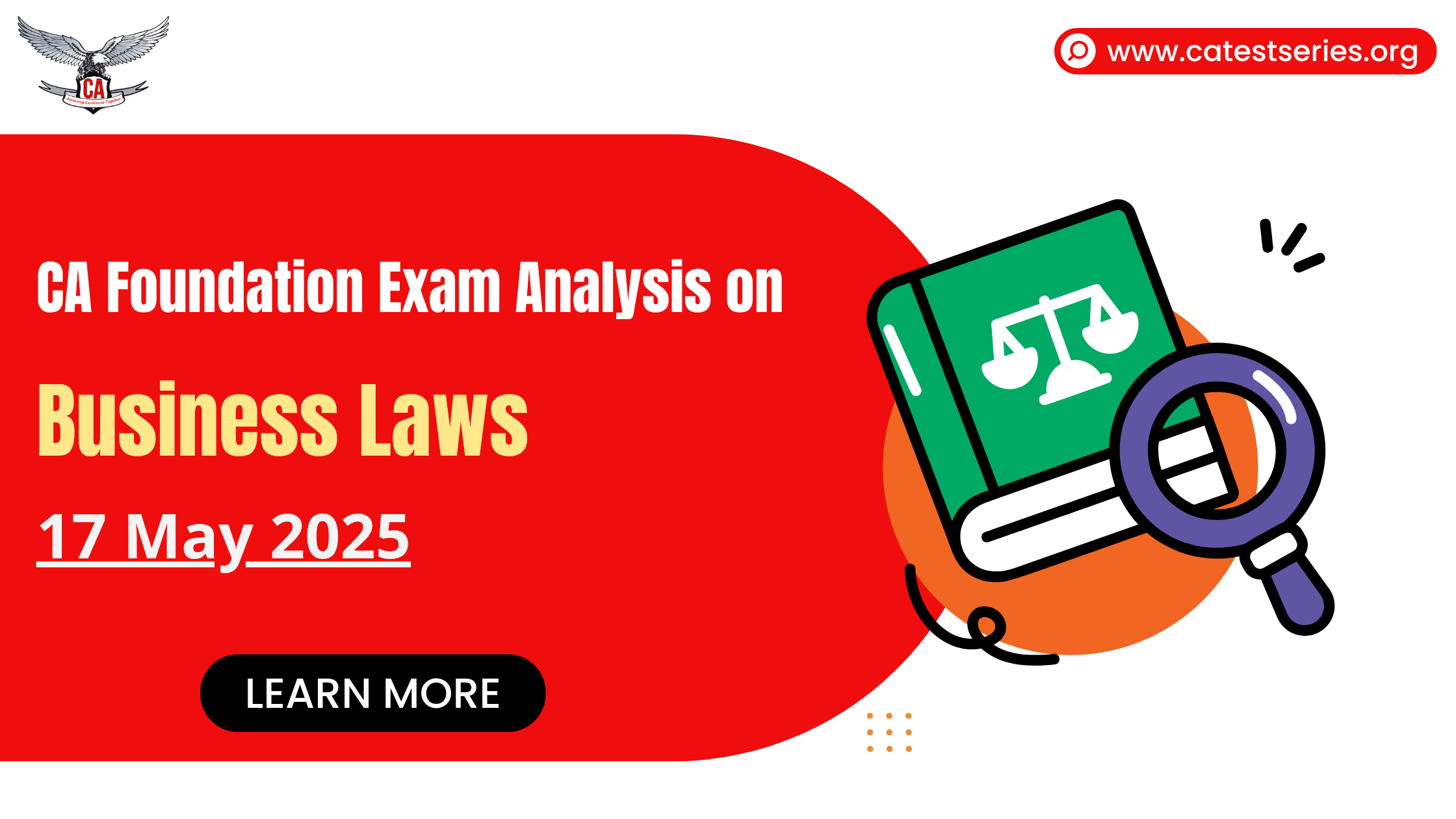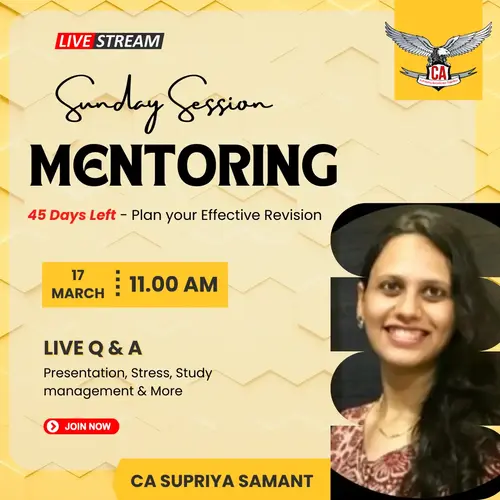ICAI CA Syllabus & Subjects for Foundation, Inter & Final (2026)
ICAI CA Syllabus January 2026: Latest Syllabus for CA Foundation, Intermediate and Final Courses
Hey CA Students, in this article, we are going to share the complete CA Syllabus and Subjects for CA January 2026 for all three CA exam levels.
As we know, the CA Exam syllabus is prescribed by the ICAI.
The CA course is divided into three levels:
- CA Foundation,
- CA Intermediate, and CA Final.
Every level has different difficulty levels with different subjects and ways of attempting the exam. The CA Foundation curriculum has four subjects similar to what you studied in 11th and 12th grade.
On the other hand, the CA Inter and Final curriculum is lengthy and has Six subjects at each level. Each courses CA syllabus must be completed within a certain period to appear for the exam.
In May and September and January, the ICAI CA exams for the Foundation, Intermediate, and Final courses are thrice a year.
There are no changes to the January 2026 CA curriculum. Thus, in this article, you will find the ICAI CA syllabus January 2026 Exam for all three levels.
CA Course and Syllabus January 2026 Highlight
ICAI CA Exams | Details of Exam |
| CA Exam Name | Chartered Accountancy (CA) exam |
| Exam Conducting Body | ICAI - ICAI - The Institute of Chartered Accountants of India |
| Exam Levels |
|
| Number of papers |
|
| CA Course Duration | 5 years |
| Frequency of Exams | Thrice in a year
|
| Minimum eligibility | 10+2 qualification |
| Number of attempts | Multiple |
CA Foundation January 2026 Course Syllabus
Here, The Students can download the Chartered Accountant January 2026 syllabus pdf
CA Exams Syllabus 2026 | PDF Link |
| CA Foundation Syllabus | Download |
| CA Inter Syllabus | Download |
| CA Final Syllabus | Download |
CA Foundation January 2026 Course Syllabus
There are four sections to the CA Foundations course. Here is what you should expect to learn in each of CA Foundations four exams:
CA Foundation Exam Paper-1: Accounting
This is a total 100 marks paper. A candidate must have to secure a 40% mark to qualify for this paper.
Module-1 | Module-2 |
| Chapter 1: Theoretical Framework | Chapter 7: Preparation of Final Accounts of Sole Proprietors |
Chapter 2: Accounting Process:
| Chapter 8: Partnership Accounts |
| Chapter 3: Bank Reconciliation Statement | Chapter 9: Financial Statements of Not-for-Profit Organizations |
| Chapter 4: Inventories | Chapter 10: Company Accounts |
| Chapter 5: Concept and Accounting of Depreciation | |
| Chapter 6: Accounting for Special Transactions |
CA Foundation Exam Paper-2: Business Laws
This paper has two parts.
Part 1: Comprises Business Law, which carries 60 marks
Part 2: Comprises Business Correspondence and Reporting, which has to carry 40 marks.
Paper 1 Sec A: Business Laws | Paper 2 Sec B: Business Correspondence and Reporting |
| Chapter 1: The Indian Contract Act, 1872 | Chapter 1: Communication |
| Chapter 2: The Sale of Goods Act, 1930 | Chapter 2: Sentence types (Direct, Indirect, Active-Passive Speech) |
| Chapter 3: The Indian Partnership Act, 1932 | Chapter 3: Vocabulary Vocabulary Root Words, Synonyms, Antonyms, Prefixes, Suffixes, Phrasal verbs, Collocations & Idioms. |
| Chapter 4: The Limited Liability Partnership Act, 2008 | Chapter 4: Comprehension Passages |
| Chapter 5: The Companies Act, 2013 | Chapter 5: Note Making |
| Chapter 6: Introduction to Basics of Writing | |
| Chapter 7: Precis Writing | |
| Chapter 8: Article Writing | |
| Chapter 9: Report Writing | |
| Chapter 10: Writing Formal Letters and Official Communication | |
| Chapter 11: Writing Formal Mails | |
| Chapter 12: Resume Writing | |
| Chapter 13: Meetings |
CA Foundation Paper-3: Quantitative Aptitude
Paper 3 has three parts, and each part carries distinct marks Topics for paper 3
Part A: Business Mathematics | Part B: Logical Reasoning | Part-C: Statistics |
| Chapter 1: Ratio and Proportion, Indices, Logarithms | Chapter 9: Number Series, Coding and Decoding, and Odd Man Out | Chapter 14: Statistical Description of Data |
| Chapter 2: Equations and Matrices | Chapter 10: Direction Tests | Chapter 15: Measures of Central Tendency and Dispersion |
| Chapter 3: Linear Inequalities | Chapter 11: Seating Arrangements | Chapter 16: Probability |
| Chapter 4: Time Value of Money | Chapter 12: Blood Relations | Chapter 17: Theoretical Distributions |
| Chapter 5: Basic Concepts of Permutations and Combinations | Chapter 13: Syllogism | Chapter 18: Correlation And Regression |
| Chapter 6: Sequence and Series - Arithmetic and Geometric Progressions | Chapter 19: Index Number and Time Series | |
| Chapter 7: Sets, Functions, and Relations | ||
| Chapter 8: Basic Concepts of Differential and Integral Calculus |
CA Foundation Paper-4: Business Economics
This paper has two parts.
Part I: Business Economics | Part 2: Business and Commercial Knowledge |
| Chapter 1: Nature & Scope of Business Economics | Chapter 1: Business and Commercial Knowledge – An Introduction |
| Chapter 2: Theory of Demand and Supply | Chapter 2: Business Environment |
| Chapter 3: Theory of Production and Cost | Chapter 3: Business Organizations |
| Chapter 4: Meaning and Types of Markets | Chapter 4: Government Policies for Business Growth |
| Chapter 5: Business Cycles | Chapter 5: Organizations Facilitating Business |
| Chapter 6: Common Business Terminologies |
CA Intermediate January 2026 Syllabus
The CA Inter Exam syllabus carries eight subjects. This CA level is divided into two groups.
A candidate faces four papers in the first group of the exam and four papers in the second group also face four papers.
To give CA Final Level, CA candidates must clear the intermediate level. As per the CA syllabus ICAI, a student gets an 8-month duration to complete all these subjects.
Syllabus for CA Intermediate Course January 2026 | |
| Group I | Group II |
Paper - 1: Accounting: This Accounting paper comprises 100 marks. Students must have to secure a 40% mark to clear this exam. Topics under this module:
The amalgamation of partnership firms; Conversion of partnership firm into a company and Sale to a company; Issues related to accounting in Limited Liability Partnership. | Paper - 5: Advanced Accounting: This paper consists of 100 marks. Students must have to secure 40% to clear the paper. Topics under this module:
|
Paper - 2: Business Laws, Ethics, and Communication: This paper has 2 parts. One is company law, and another is other laws. These 2 parts carry 50 marks each. Topics under this module:
Note- Sections of the Companies Act, 1956 which are still in force will form part of your syllabus. SECTION – B Other Laws Laws covered under this section –
| Paper - 6: Auditing and Assurance: This is paper is 100 marks. Topics under this module:
|
Paper - 4: Taxation This paper is divided into two sections. One Section: Income tax law - 50 marks 2nd Section: Indirect taxes - 50 marks also. SECTION – 1 Income Tax
SECTION – 2nd Indirect Taxes Topics covered under this head are-
iii. Basic concepts of time and value of supply
vii. Tax invoice; Credit and Debit Notes; Electronic way bill viii. Returns
| Paper - 8: Financial Management and Economics for Finance: This paper also has two sections. Section One: Financial Management Section 2nd: Economics for Finance. Both sections carry 100 marks like paper 7. SECTION – 1: Financial Management Topics under this section:
These are the topics that you will study in depth under this section. SECTION – 2nd Economics for Finance Topics under this section:
|
The CA intermediate exam consists of 800 total marks. This level of CA is challenging as compared to the CA foundation level.
Therefore, students must pay close attention to this level of exam.
ICAI CA Final Course January 2026 Syllabus
CA final exam is the last step toward a qualified CA. Students, if you want to prefix CA to your names, you must face all these three levels of ca exams.
The final level exam of CA consists of 8 subjects. ICAI conducts this exam in two groups just like CA Intermediate level.
CA Final Paper 1: Financial Reporting: This paper carries 100 marks. | |
| Framework for Preparation and Presentation of Financial Statements | Analysis of Financial Statements |
| Application of Indian Accounting Standards (Ind AS) | Integrated Reporting |
| Indian Accounting Standards on Group Accounting | Corporate Social Responsibility Reporting |
| Accounting and Reporting of Financial Instruments (as per Ind AS) | |
CA Final Paper 2: Advanced Financial Management | |
| Financial Policy and Corporate Strategy | Portfolio Management |
| Risk Management | Securitization |
| Security Analysis | Mutual Fund |
| Security Valuation | Derivatives Analysis and Valuation |
| Foreign Exchange Exposure and Risk Management | International Financial Management |
| Interest Rate Risk Management | Corporate Valuation |
| Mergers, Acquisitions, and Corporate Restructuring | Startup Finance |
CA Final Paper 3: Advanced Auditing and Professional Ethics | |
| Auditing Standards, Statements, and Guidance Notes | Special features of audit of Banks, Insurance & Non-Banking Financial Companies |
| Audit Planning, Strategy, and Execution | Audit under Fiscal Laws |
| Risk Assessment and Internal Control | Audit of Public Sector Undertakings |
| Special aspects of Auditing in an Automated Environment | Liabilities of Auditors |
| Audit of Limited Companies | Internal Audit, Management, and Operational Audit |
| Audit Reports | Due Diligence, Investigation, and Forensic Audit |
| Audit Committee and Corporate Governance | Peer Review and Quality Review |
| Audit of Consolidated Financial Statements | Professional Ethics |
CA Final Paper – 4 :Indirect tax laws | |
| Part I- Taxation of International Transactions and Non-resident Taxation in India | Part II - Other aspects of International Taxation |
| Transfer Pricing provisions under the Income-tax Act, 1961 | Overview of Model Tax Conventions |
| Other Provisions relating to the taxation of international transactions and non-resident taxation under the Income-tax Act, 1961 | Tax treaties, Applications, and Interpretation |
| Law and Procedures under the Black Money (Undisclosed Foreign Income and Assets) and Imposition of Tax Act, 2015 – An Overview. | Anti Avoidance Measures |
| Taxation of E-Commerce Transactions | |
CA Final Paper – 5 : Multidisciplinary Case Study | |
| Financial Accounting and Reporting | Management Accounting |
| Audit and Assurance | Corporate Laws |
| Taxation | Business Strategy and Management |
| Finance and Financial Management | |
CA Final Paper – 6: Direct Tax Laws and International Taxation | |
| Part I : Direct Tax Laws | Part II: International Taxation |
The CA intermediate exam consists of 800 total marks. This level of CA is challenging as compared to the CA foundation level & CA inter.
Therefore, students must pay close attention to this level of exam & have to score 40% marks to clear the CA exams like our shining stars:
We hope, this article will be useful for your CA exam preparation.
Stay tuned with catestseries.org for more CA January 2026 updates!



